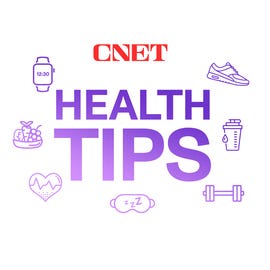More than 300,000 people are diagnosed with colon cancer in America and Europe annually, and while it’s most common among older adults, it can affect individuals of all ages, races and genders.
Academy award-winning actor Chadwick Boseman and three-time World Cup Championship-winning soccer player Pele both succumbed to colorectal cancer. Most recently, 35-year-old TikTok celebrity Randy Gonzalez passed away due to colon cancer after his diagnosis at age 33. These tragic events have brought conversations about the importance of screenings and staying up-to-date on your health to the forefront.
Knowing the signs and being proactive in getting care is crucial for colon cancer recovery. Below we discuss the signs of colon cancer, its risk factors and things you can incorporate into your daily life to lower your risk of CRC.
About colon cancer


The colon is a part of the large intestine; colon cancer forms here when there’s an abnormal growth of polyps that form into cancerous cells over time. According to the Mayo Clinic, the polyps are small and may cause few to no symptoms. Regular screening is recommended, particularly if you have risk factors or are showing signs of colon cancer.
According to a report from Yale University, colon cancer tends to grow differently in men compared with women. Rates of colon cancer are lower among women, but they’re also more likely to develop right-sided colon cancer, a more aggressive type of colon cancer.
7 signs of colon cancer
- Change in your bowel movements or stool consistency
- Constipation or diarrhea
- Bleeding from rectum
- Blood in the stool
- Sudden weight loss
- Regular stomach pain, discomfort or cramps
- Bowels don’t feel empty
Risk factors
Increased risk factors for colon cancer include:
- You’re 50 years or older
- Family history of colon cancer
- Chronic inflammatory conditions like ulcerative colitis or Crohn’s disease
- Poor diet high in fat and low in fiber
- Alcohol
- Smoking
- An inactive lifestyle
- Obesity
Ways to reduce the risk of colon cancer
- Cancer screening: The average person should begin screening for colon cancer around age 45, but consider screening earlier if you have increased risk factors.
- Nutrition: Incorporate different fruits, vegetables and whole grains into your diet to reap their nutrients. Foods like berries, grapes, broccoli and brown rice contain vitamins, minerals and antioxidants that may have cancer-preventing benefits.
- Smoke and drink in moderation: You don’t have to quit cold turkey, but these habits should be practiced in moderation to lower your risk of colon cancer.
- Exercise: Regular exercise can help maintain a healthy body and weight, which lowers the risk of colon cancer. Aim for 150 minutes of activity weekly, or 20 to 30 minutes daily.
For tips on healthy living and easy at-home exercises, here are tips on how to improve your gut health and six low-impact exercises you can do anywhere.
The information contained in this article is for educational and informational purposes only and is not intended as health or medical advice. Always consult a physician or other qualified health provider regarding any questions you may have about a medical condition or health objectives.

